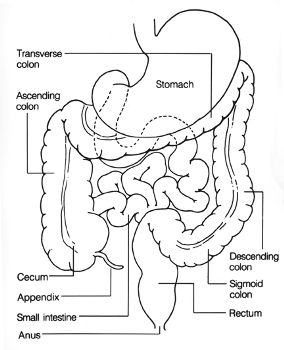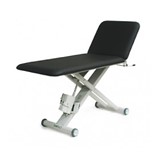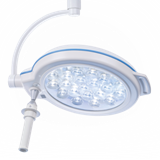However, not all of the cases will be adults 50 and older, which is the general age for this type of cancer.
Although colorectal cancer may result from lifestyle habits and aging, a small percentage is associated with genetic instability. "A screening colonoscopy is effective at decreasing the chance of dying from colorectal cancer," said Eng.
"It is also important to know the risks associated with the disease and recognize symptoms so it can be diagnosed in its earliest stages." To prevent the disease, people are encouraged to live healthy lifestyles including a well-balanced diet and exercise, and begin screening at age 50.
Ledet shares that her grandmother, a heavy smoker, recently died of lung cancer but there is no other history of cancer in her family. As a non-smoker and exercise enthusiast, Ledet took pride in being physically fit. She exercised three to five times a week, and for the most part, tried to eat healthy, well-balanced meals and limit alcohol consumption.
Breaking the Age Minimum
Diagnosed at age 35, Ledet's initial thought was that she was too young and healthy for cancer, especially colorectal cancer. "When the pains first started it was nothing horrible, just annoying," said Ledet. "Having a colonoscopy screening was not even on my radar."
The initial diagnosis from her doctor in St. Amant, La. was that the pains were caused by picking up her five-month old child. But when the pain persisted, she insisted on discovering the source of her discomfort. After an ultrasound ruled out a cyst on her ovaries, and the kidney stones and constipation theories didn't pan out, Ledet took a friend's advice and saw a gastrointestinal doctor.
After six weeks of chemotherapy and radiation, Ledet was told that after surgery there would be a 90 percent chance that she would need to wear a colostomy bag - pouch used to collect waste from the body - for the rest of her life.
It wasn't until after she received the same diagnosis from a second doctor in her hometown that her husband suggested they come to MD Anderson. "The decision to pack up our bags and head to Houston was the best decision we've made since my diagnosis," said Ledet.
Ledet underwent surgery at MD Anderson and only had to wear a colostomy bag temporarily until function was restored to her intestine and rectum. Beside a few side effects, her treatment and care at MD Anderson has improved her quality of life.
"She's definitely not the usual colorectal cancer patient we see in the clinic," said Eng. "In fact, this type of cancer is less common in adolescents and young adults than in older people unless there is a family history of cancer." In Ledet's case it was important to persist and not ignore continued pain even if it seemed minor.
"I'm grateful to be alive and excited about participating in the SCOPE Run," said Ledet. "I walk on a treadmill several times a week to stay active, but I've never participated in a run for a wonderful cause like this. I'm so excited to join supporters and survivors of colorectal cancer in the annual run. It's important to continue educating people and raising awareness about this disease."



